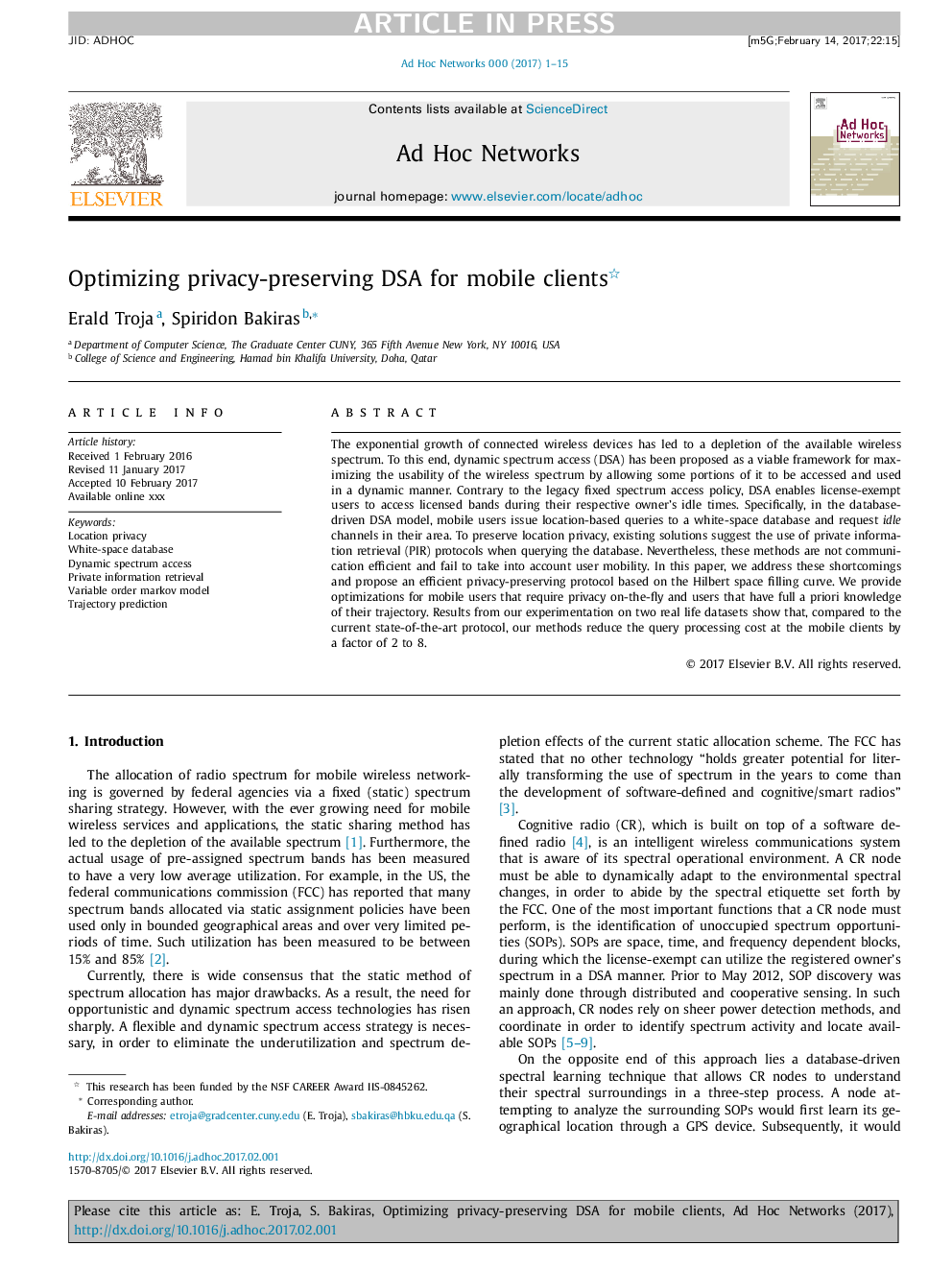| Article ID | Journal | Published Year | Pages | File Type |
|---|---|---|---|---|
| 4953594 | Ad Hoc Networks | 2017 | 15 Pages |
Abstract
The exponential growth of connected wireless devices has led to a depletion of the available wireless spectrum. To this end, dynamic spectrum access (DSA) has been proposed as a viable framework for maximizing the usability of the wireless spectrum by allowing some portions of it to be accessed and used in a dynamic manner. Contrary to the legacy fixed spectrum access policy, DSA enables license-exempt users to access licensed bands during their respective owner's idle times. Specifically, in the database-driven DSA model, mobile users issue location-based queries to a white-space database and request idle channels in their area. To preserve location privacy, existing solutions suggest the use of private information retrieval (PIR) protocols when querying the database. Nevertheless, these methods are not communication efficient and fail to take into account user mobility. In this paper, we address these shortcomings and propose an efficient privacy-preserving protocol based on the Hilbert space filling curve. We provide optimizations for mobile users that require privacy on-the-fly and users that have full a priori knowledge of their trajectory. Results from our experimentation on two real life datasets show that, compared to the current state-of-the-art protocol, our methods reduce the query processing cost at the mobile clients by a factor of 2 to 8.
Related Topics
Physical Sciences and Engineering
Computer Science
Computer Networks and Communications
Authors
Erald Troja, Spiridon Bakiras,
